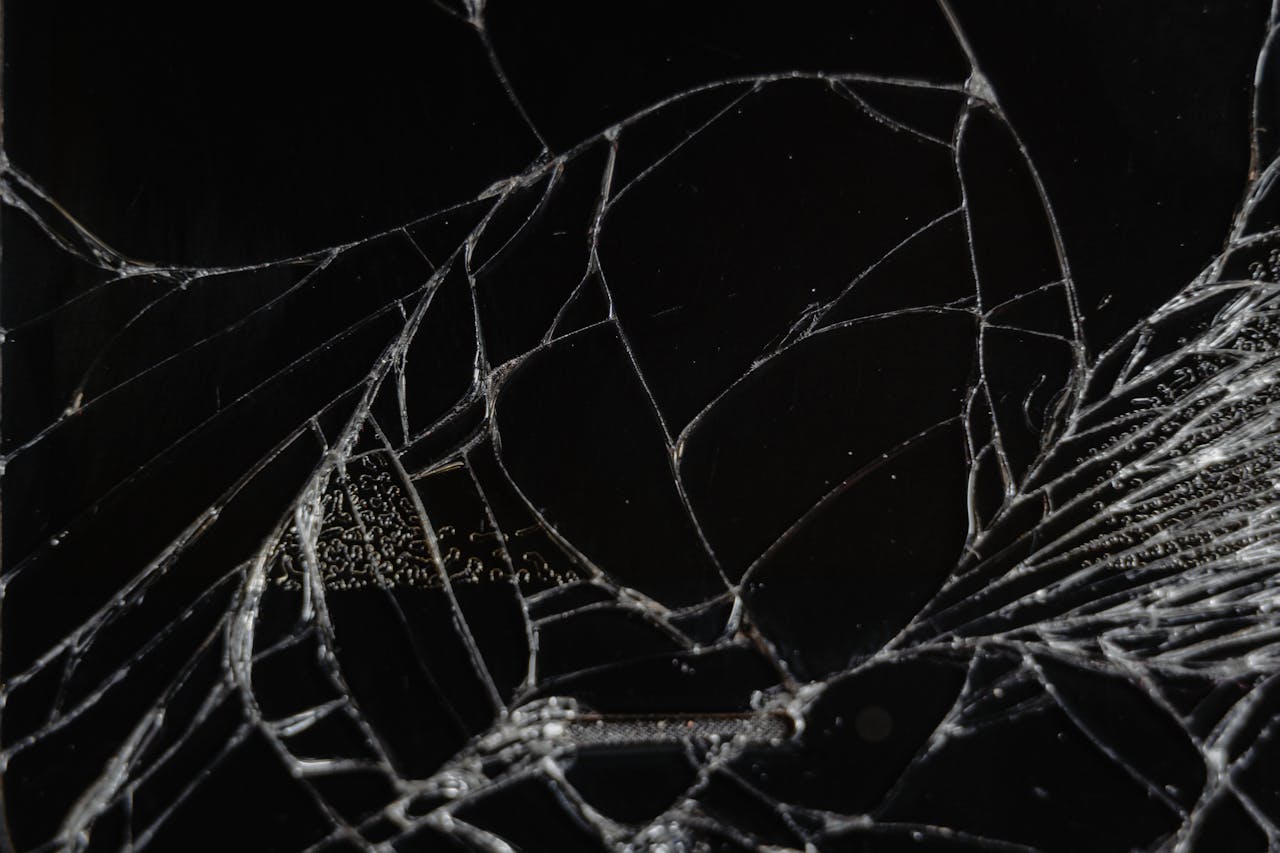
In these five poems, grief fractures language, memory, and time, but within the brokenness, something intimate and resilient takes shape. Each silence, absence, and unsaid word builds a quiet architecture of love that survives collapse.
The Theory of Fragments
The Theory of Fragments
— where wholeness was never the intention
Theme: Fracture
I was not made
for permanence.
Even my shadow stutters
across thresholds,
unsure whether to flee
or fold —
it hesitates like an echo
uncertain of its source.
I once believed in closure,
that chapters end cleanly,
that grief comes with punctuation —
a full stop, a breath,
perhaps a new paragraph.
But I have known only
unfinished sentences
and margins scribbled with names
that no longer respond.
Memory arrives
like loose change
in grief’s back pocket —
useless in the present tense,
yet impossible to discard.
It jingles in moments of quiet,
interrupts sleep with
its minor insistence.
Photographs blur over time.
Voices erode.
But certain silences
remain undiluted.
Like the exact weight
of her fingers
on my shoulder
that evening she said nothing—
and it meant everything.
They say healing is linear.
I say it’s a spiral staircase
in a burning house—
you keep ascending,
thinking you’ve escaped,
only to realize
you’ve returned
to the room
where the fire began.
And yet,
within the fracture,
there is architecture.
The break holds shape.
I have learned
to love the mosaic
more than the mirror.
Grammar of the Forgotten
— when syntax inherits silence
Theme: Absence
The sentence ends
where the body fell.
No comma could pause it,
no conjunction undo the collapse —
language failed
long before the heart did.
What remains is not a period,
but a hanging clause,
an absence that interrupts rhythm
without permission.
Grief, too,
has its own grammar:
ellipses where voices used to be,
a syntax of shadows
walking rooms
that no longer belong to anyone.
I found her handwriting
on a recipe card—
a verb missing its subject.
Still, the ink knew
how to linger
longer than the meal ever did.
The loops of her “g”
still tasted like cinnamon.
The flour-stained edge
curled like a question
she never got to ask.
Absence rewrites everything—
the calendar, the cupboard,
even the morning light
that no longer lands
quite right on the tiles.
There’s no spell
for conjugating someone
you’ve already buried.
Yet I keep trying.
I rearrange sentences
as if she’ll step out
from between the lines.
But the page remains
quiet,
unrevised,
resolved only in its refusal
to respond.
Curtains at Noon
Curtains at Noon
— for the light that never entered
Theme: Concealment
No one draws curtains at noon
unless they fear revelation.
I did—
not to banish light,
but to obscure what it might uncover:
a dust-laced stillness,
a silence too brittle to survive
direct sun.
Behind the fabric,
the world dulled into a manageable blur.
I preferred it that way—
reality filtered
like memory through gauze.
The room remembered her—
not vividly,
but with domestic precision:
the way she folded grief
into laundry,
or aligned the teaspoons
as if order could ward off loss.
Now the bedsheets hang
like arrested lullabies,
and time has settled
between the floorboards
with the finality
of something no longer rehearsed.
Even the air feels curated,
as if her absence had been
taxonomized,
assigned to drawers,
labeled by season.
Still, the grief resists containment.
I find myself
ironing pillowcases
that haven’t been used in years—
each crease a tether,
each scentless fold
a return ticket to a moment
I’ll never again reach.
The sun keeps rising
as if nothing ruptured.
But I keep the curtains drawn—
not out of fear,
but because I know
what the light remembers.
And I am not ready
to be remembered that way.
A Body of Water
A Body of Water
—relearning how to drown on land
Theme: Resilience
They told me
I was made of water—
resilient, reflective,
restorative.
That I would rise
like rivers do
when no one is watching.
But no one warned me
what happens
when the tide retreats
for good.
When the shore you trusted
no longer receives you,
and the moon forgets
to pull you back.
I became the sea
without surface.
Still fluid—
but now contained
in bone.
I carry oceans in my knees,
storm surge in my breath.
Each step is a reckoning.
Each silence,
a coastline without a lighthouse,
where even memory
gets lost.
I used to float—
not by will,
but by surrender.
Now I walk,
not to arrive,
but to remind myself
I am no longer
drowning.
Yet, some nights—
the kind without stars,
without wind—
I still dream in undertow.
Still yearn
for the comfort of submersion.
For the quiet
beneath the break.
To be water
is to be inherently unheld—
and still,
I shape myself
as if containment were an art.
There is something sacred
in not collapsing.
Even when everything within
has already
spilled.
Exeunt, Unsaid
Exeunt, Unsaid
— what leaves when nothing does
Theme: Silence
Not all departures require doors.
Some leave
through withheld glances,
unspoken sentences
left mid-thought—
a pause mistaken for patience.
She never said goodbye.
Not once.
But she started folding
my shirts with corners sharper
than her sighs.
And that, too,
was a kind of exit.
I have learned to read goodbyes
in lowercase rituals:
teacups left unsweetened,
the last spoon never returned
to its drawer,
a voicemail unheard
yet always saved.
The calendar became a cemetery—
full of unvisited anniversaries,
birthdays that only existed
in their own echo.
Grief does not knock
when it’s lived in.
It simply moves furniture
and dares you
to remember the original layout.
She never said
“I’m proud of you.”
But the soup was always warm.
She adjusted the fan
to face me
even in July.
And once,
she left me the last ripe mango.
Love, I’ve come to learn,
is not always declarative.
Sometimes,
what’s unsaid
speaks more clearly
than any declaration.
It resonates
like the hum after applause —
something gone,
yet lingering.
And so she left.
Without a door,
without a suitcase.
Only a silence
so specific
it wore her perfume.
Comments
*Comments will be moderated











